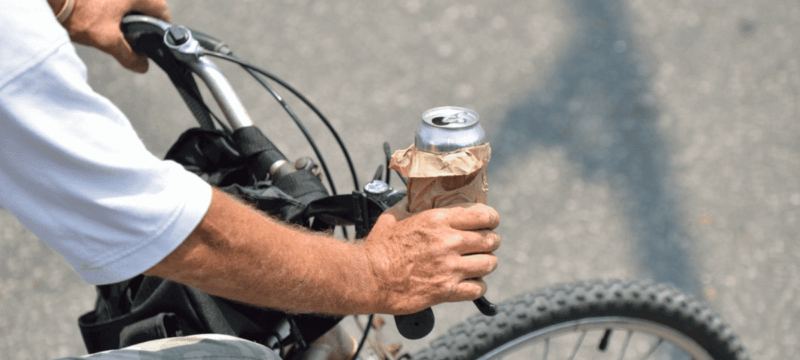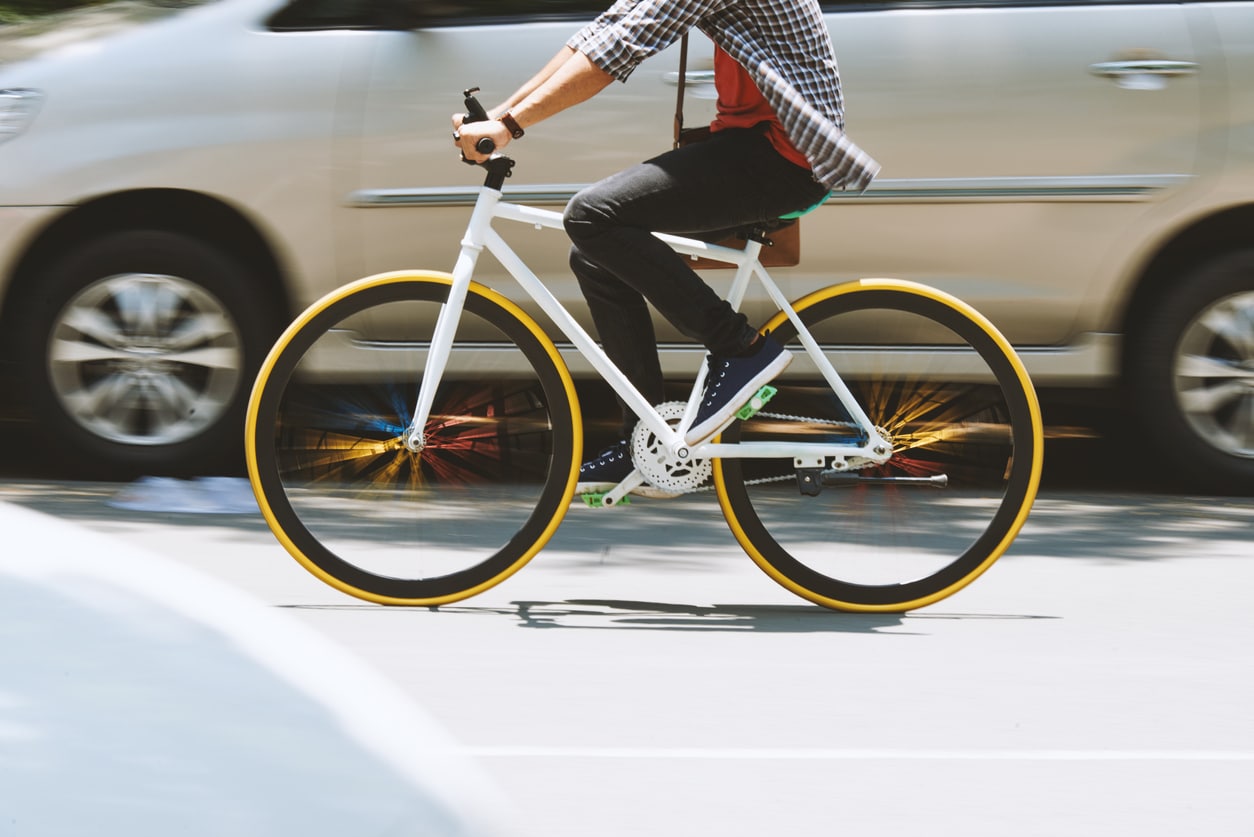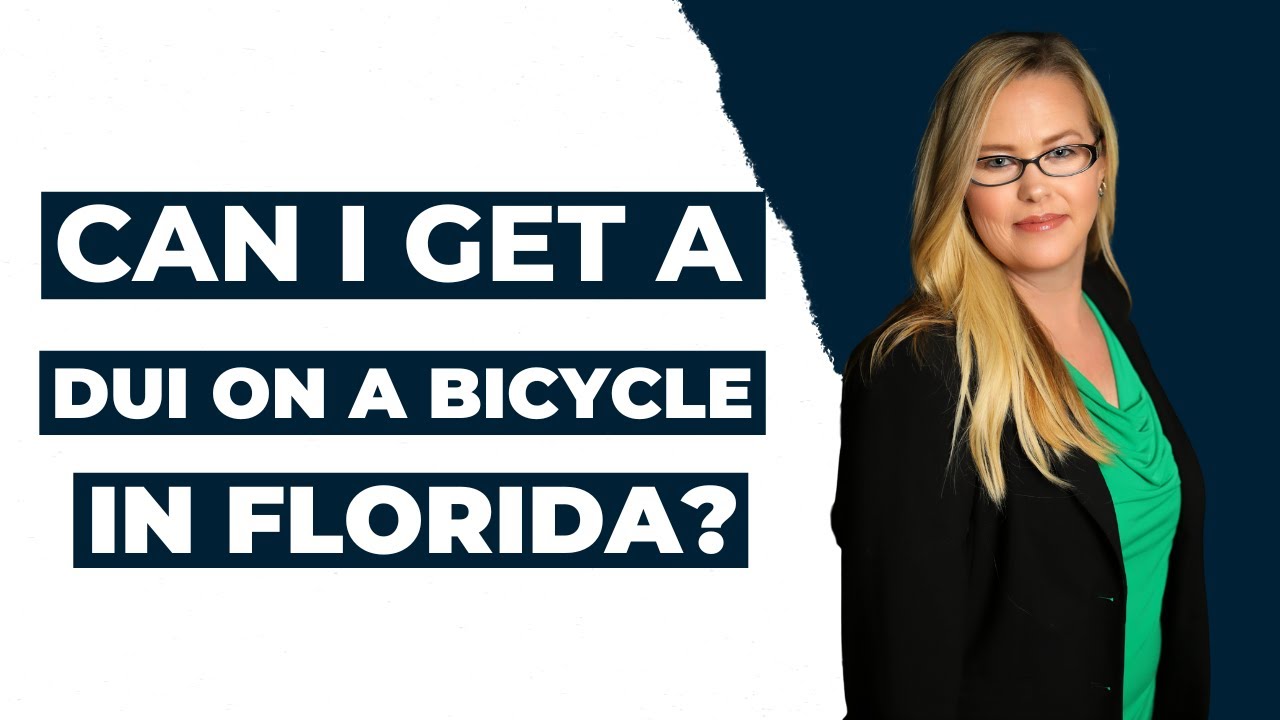In the sunny state of Florida, the question of whether one can get a DUI on a bicycle has often sparked curiosity. This intriguing topic arises from the unique combination of warm weather, vibrant bike culture, and strict alcohol laws in the state. As we take a closer look, we will explore the legal implications, potential consequences, and the fascinating debate surrounding this lesser-known aspect of Florida’s DUI laws. So, fasten your seatbelt, hop on your bicycle, and join us on this journey through the legal maze of DUIs in the Sunshine State.
Overview of DUI Laws in Florida
Definition of DUI
In Florida, DUI stands for Driving Under the Influence. This offense occurs when an individual operates a motor vehicle while impaired by alcohol or drugs. It is important to note that Florida law not only covers traditional motor vehicles like cars and motorcycles but also includes bicycles.
Blood Alcohol Content (BAC) Limits
Florida has set specific limits regarding the allowed Blood Alcohol Content (BAC) for operating a motor vehicle. For individuals aged 21 and older, the legal limit is 0.08%. However, if you are under the age of 21, the legal limit is much stricter, at 0.02%. It is important to remember that these limits apply not only to cars but also to bicycles.
Penalties for DUI
If someone is convicted of a DUI in Florida, regardless of the type of vehicle they were operating, they can face severe penalties. These penalties can include fines, probation, license suspension, community service, mandatory DUI school, and even jail time.
Difference between DUI and BUI
While DUI refers to Driving Under the Influence of alcohol or drugs, BUI stands for Boating Under the Influence. Though both offenses involve operating a vehicle while impaired, BUI applies specifically to operating a watercraft while under the influence. It is important to understand that these offenses are separate under Florida law.
Understanding Bicycles under Florida Law
Bicycles as Vehicles
Under Florida law, bicycles are considered vehicles. Therefore, cyclists must adhere to traffic laws and regulations, just like motorists. Bicycles have the same rights and responsibilities as other vehicles on the road, including stopping at red lights and stop signs and yielding the right of way.
Traffic Laws for Bicycles
Bicycles are subject to various traffic laws in Florida. Cyclists must ride in the same direction as the flow of traffic and are not allowed to ride against it. Additionally, bicycles must have appropriate lighting, including reflectors and a white light in the front, when riding at night.
Responsibilities of Bicyclists
Bicyclists have certain duties and responsibilities while operating their bicycles in Florida. They must exercise due care, signaling their intentions to turn or change lanes, and yielding to pedestrians when necessary. Moreover, cyclists are encouraged to wear helmets and increase their visibility by wearing reflective clothing.

This image is property of www.thedensonfirm.com.
DUI Laws and Bicycles
Definition of a Motor Vehicle
Under Florida law, a bicycle is considered a motor vehicle for the purposes of DUI offenses. This means that individuals can be charged with a DUI if caught operating a bicycle while under the influence of alcohol or drugs.
Specifics of DUI Law in Florida
When it comes to DUI on bicycles, Florida’s legal framework treats the offense similarly to a regular DUI involving a motorized vehicle. Individuals who are proven to be impaired while operating a bicycle can face the same penalties and consequences defined in the state’s DUI statutes.
Legal Precedents on DUI and Bicycles
In Florida, there have been cases where individuals have been charged with DUI while riding bicycles. Courts have consistently upheld that bicycles are considered motor vehicles under DUI laws. Therefore, it is essential for cyclists to be aware of the potential consequences and abide by the law to avoid legal troubles.
Enforcement of DUI on Bicycles
Sobriety Tests for Bicyclists
Law enforcement officers in Florida are authorized to conduct sobriety tests on bicyclists suspected of riding under the influence. These tests may include field sobriety tests, breathalyzer tests, and urine or blood tests, depending on the circumstances.
Breathalyzers and Bicycles
Breathalyzers, which measure an individual’s BAC by analyzing their breath sample, can also be used on bicyclists suspected of DUI. If a cyclist registers a BAC level above the legal limit, they may be arrested and charged with a DUI offense.
Field Sobriety Tests on Bicycles
Similar to motor vehicle operators, bicyclists can be subjected to field sobriety tests to assess their impairment. These tests often include the walk-and-turn test, the one-leg stand test, and the horizontal gaze nystagmus test, which are designed to measure a person’s coordination, balance, and responsiveness.

This image is property of www.peoplepoweredmovement.org.
Penalties for DUI on Bicycles in Florida
License Suspension
If convicted of a DUI offense while operating a bicycle in Florida, one of the potential consequences is the suspension of the individual’s driver’s license. This can greatly impact their ability to commute to work or carry out other essential responsibilities.
Fines and Court Fees
DUI convictions on bicycles can result in substantial fines and court fees. These financial penalties typically increase for repeat offenses or for cases involving aggravating factors such as high BAC levels or accidents caused while under the influence.
Probation
Probation is another potential penalty for DUI on bicycles in Florida. During the probation period, individuals must comply with specific conditions imposed by the court, such as attending counseling or treatment programs, submitting to random drug tests, or regularly checking in with a probation officer.
Ignition Interlock Devices
While typically associated with DUI offenses involving motor vehicles, ignition interlock devices (breathalyzer devices installed in vehicles that prevent them from starting if the driver’s BAC level exceeds a certain threshold) may also be required for individuals convicted of DUI on bicycles in Florida.
Community Service
As part of the penalties for DUI on bicycles, the court may order individuals to perform community service. This requirement often involves completing a certain number of hours of unpaid work to benefit the community, such as picking up litter or assisting with local projects.
DUI School
Florida law requires individuals convicted of DUI, regardless of the type of vehicle involved, to attend DUI school. This educational program aims to provide offenders with knowledge about the dangers of driving under the influence and the possible consequences they may face if they continue to engage in such behavior.
DUI and Bicycle Safety
Dangers of Riding Under the Influence
Riding a bicycle under the influence significantly increases the risk of accidents and injuries. Impaired judgment, decreased coordination, and reduced reaction times can make it challenging to navigate safely on the road, potentially putting the bicyclist and others in danger.
Lack of Protection while Cycling
Unlike motorists who have the protection of a vehicle’s structure and safety features, bicyclists have minimal protection during accidents. Impaired cyclists are more susceptible to sustaining severe injuries if involved in a collision, often resulting in long-term physical consequences or even death.
Increased Risk of Accidents
Cycling requires attentiveness and quick reflexes. Operating a bicycle while intoxicated impairs these vital skills, making it more likely for an impaired cyclist to cause or be involved in an accident. This places both the cyclist and others sharing the road at a heightened risk of injury.
Legal and Insurance Consequences
In addition to the physical dangers, DUI on bicycles can have significant legal and insurance consequences. A DUI conviction can result in increased insurance premiums, difficulties obtaining coverage, and may limit options for legal recourse in the event of an accident.

This image is property of tampabayfloridalawyers.com.
Controversies and Discussions
Arguments against DUI on Bicycles
Some individuals argue that DUI laws should not apply to bicycles as they are less likely to cause severe accidents compared to motor vehicles. They believe that enforcement resources should be focused more on deterring DUI offenses involving cars and trucks instead.
Counterarguments in Support of DUI on Bicycles
Supporters of DUI laws on bicycles argue that impaired cyclists can still pose a danger to themselves and others on the road. They point out that bicycles, while smaller, can still cause accidents and injuries, especially in dense urban areas where pedestrians and other cyclists are prevalent.
Prevention and Awareness
Promoting Responsible Cycling
To combat DUI on bicycles, it is crucial to promote responsible cycling behaviors. This includes educating the public on the risks of riding under the influence, encouraging cyclists to plan alternative transportation options, and raising awareness about the potential legal consequences of DUI offenses on bicycles.
Educational Campaigns
Public awareness campaigns can play a significant role in preventing DUI on bicycles. These campaigns can educate cyclists about the dangers of cycling under the influence, provide information on alternative transportation options, and emphasize the importance of making responsible choices while riding.
Encouraging Designated Cyclists
Similar to designated drivers for motor vehicles, promoting designated cyclists can help reduce the incidence of cycling under the influence. Encouraging individuals to take turns being the sober cyclist in a group can provide a safe alternative and prevent impaired cycling.
Alternative Transportation Options
Creating accessible and reliable alternative transportation options can help prevent DUI on bicycles. Expanding bike-sharing programs, improving public transportation, and promoting the use of ride-sharing services or taxis can provide individuals with safe alternatives when they are unable to ride their bicycles sober.

This image is property of www.jacksonvillecriminallawyerblog.com.
Comparisons with Other States’ DUI Laws
DUI Laws for Bicycles in California
California, like Florida, considers bicycles as vehicles under DUI law. Therefore, individuals can be charged with a DUI in California if caught operating a bicycle while under the influence. The BAC limits and penalties for DUI on bicycles in California are similar to those in Florida.
DUI Laws for Bicycles in New York
New York also treats bicycles as vehicles under DUI law. Operating a bicycle while intoxicated can lead to a DUI charge in New York State. The legal limits and penalties for DUI on bicycles in New York are comparable to those in Florida and California.
Contrasting State Regulations
While many states, including Florida, California, and New York, consider bicycles as vehicles under DUI law, it is important to note that specific BAC limits, penalties, and legal precedents may differ. It is crucial for individuals to understand the specific DUI laws and regulations in their respective states to avoid potential legal issues.
Conclusion
Summary of DUI Laws for Bicycles in Florida
In Florida, DUI laws extend to bicycles, treating them as motor vehicles for the purposes of DUI offenses. Cyclists are subject to the same BAC limits, penalties, and legal consequences as individuals operating motorized vehicles. Those convicted of DUI on bicycles can face license suspension, fines, probation, community service, and may be required to attend DUI school.
Importance of Responsible Cycling
Responsible cycling is crucial to ensuring the safety of bicyclists and others on the road. Avoiding cycling under the influence, adhering to traffic laws, wearing appropriate safety gear, and promoting awareness can contribute to a safer cycling environment.
Potential Reforms
Ongoing discussions and debates surround the application of DUI laws to bicycles. While some argue for stricter enforcement and penalties to deter DUI on bicycles, others advocate for a reevaluation of the current laws. Potential reforms may include adjusting BAC limits, exploring alternative penalties, and further educating the public on responsible cycling practices.

This image is property of i.ytimg.com.




